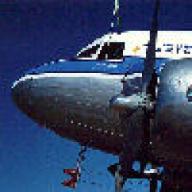Yahoo Answers is shutting down on May 4th, 2021 (Eastern Time) and beginning April 20th, 2021 (Eastern Time) the Yahoo Answers website will be in read-only mode. There will be no changes to other Yahoo properties or services, or your Yahoo account. You can find more information about the Yahoo Answers shutdown and how to download your data on this help page.

Chaz100
In what grade (in the U.S.) did you learn about degrees in a circle and?
how to use a protractor when measuring or drawing angles? Thanks. Info asked by an author who has too many years between now and that instruction to remember.
2 AnswersPrimary & Secondary Education1 decade agoFrench boy's first name that is same spelling in French as in English?
I need a first name for a boy that spells the same in French as in English. This will be for a WW2 era novel. My first preference is a rwo-syllable name. Thank you for any suggestions.
6 AnswersLanguages1 decade agoLooking for German surnames and their transliteration into American Surnames?
This would be for a novel where the name is changed from its German version into the American version after arrival into the US
3 AnswersLanguages1 decade agoanother time usage question in France?
I understand that the French, like all Europeans, use the 24-hour clock. Now my interest is how they might actually "say" a time. For example, if I wanted to meet someone at 0635 in the morning, how would I say that? Would it be, "See you at zero-six-thirty-five tomorrow morning." or would they drop the leading zero and say, "See you at six-thirty-five tomorrow morning." I'm writing a WW2 novel of which the bulk takes place in France and I'm trying to avoid botching the French basics of dialogue. Thanks for your help and answers.
4 AnswersLanguages1 decade agoFrench Time System -- WW2 era?
Was France on the 24-hour time system during the WW2 era, like 1834 would be 6:34 p.m. in the U.S. time system?
1 AnswerOther - Society & Culture1 decade agoQuestion for 11th grade students?
What was your favorite classical literature that you were required to read this year (or in 11th grade if not this year)? If it was Shakespeare, could you also note which play?
Need this info for a book that I'm writing.
Thanks to all who answer.
Chaz
4 AnswersPrimary & Secondary Education1 decade agoWould a British Man really say "Old Chap" to a friend?
I have a book situation between an ex-military man (British) and a younger person (American) that he is mentoring through spy training. But sometimes it becomes exasperating. So, might he say, "Old Chap, that is not the way we do it." for example. Or is that too stereotyped?
Thanks for any feedback.
Chaz
6 AnswersBooks & Authors1 decade agoCritical comments wanted on these opening paragrahs?
This is a WW2 spy story with a 17 year old boy the unlikely hero. The novel is aimed at High School age students.
Chapter One … On The Way
“Clifford!” I shouted over the roar of our speeding Jeep, “The moon is too bright! We can’t go tonight!” Clifford was sitting up front with the driver and I was in the back, holding on to the side rails of the jeep for dear life, to keep from being thrown out. My parachute and other gear lay on the floor. The cool evening air chilled my face as we raced along the service road not far from the airfield’s darkened runway.
Without even a glance at the shining moon Clifford turned to me and shouted, “Michael, we picked tonight to leave because of the full moon. Now stop worrying about it and focus on your mission!” and with that he turned back to the front.
I sighed, and replied tiredly. “Yes sir, Clifford.” Clifford was ex-British military and ever since we had first met, I had quickly learned that “Yes Sir, No Sir,” or “I don’t know Sir,” was just about all he cared to hear from me.
I looked around the blacked-out airfield as we sped through the late night air. War-time regulations prohibited any light showing after dark—that could attract German bombers. All of England suffered under that blackout regulation. But in the bright moonlight I could easily see the hundreds of twin-engine C-47 transport aircraft, silently parked in anticipation of dropping paratroopers into France in the upcoming great invasion by the Allies. The goal of the Americans, British, and Canadians was to drive the occupying German forces out of France, back to their homeland.
I first met Clifford six weeks ago, at Pershing High School, in Addis, Georgia. His first words still stayed with me. “Michael, as an eleventh-grade student with your background, you are absolutely perfect for this small bit of adventure.” It seemed a year ago.
But now that I was on my way, my anticipation of this “small bit of adventure” had turned to dread. No matter how calming Clifford tried to be during training, I knew that great danger lay ahead.
Our driver suddenly swerved to the left, on to a hard stand, and braked heavily to a stop. In front, not ten yards away, stood a parked C-47 aircraft, its passenger door open, beckoning us to a dark interior.
3 AnswersBooks & Authors1 decade agoTranslate into German -- and do you speak German?
Please include proper german letters.
2 AnswersLanguages1 decade agoTranslate into French - The Cat is White?
4 AnswersLanguages1 decade ago
